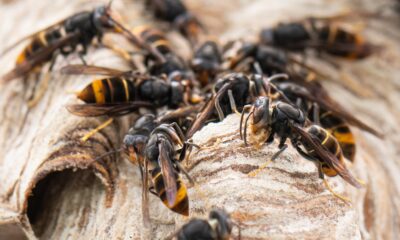Science
Startups Express Concerns as Callaghan Institute Winds Down

The impending wind-down of the Callaghan Institute has sparked significant concern among startups and innovators in New Zealand, who fear a diminished capacity to commercialise scientific research. As the institute prepares to close some of its essential programmes by January 2024, stakeholders are questioning the future of research support and its implications for innovation in the region.
The Callaghan Institute has been a cornerstone of New Zealand’s science and innovation landscape, providing crucial funding and resources to numerous startups. With its closure, many in the science sector worry that opportunities for translating research into viable products will be drastically reduced. This could lead to a slowdown in the growth of new technologies and businesses that rely heavily on academic research.
Innovators have raised alarms over the potential gap left by the institute’s exit. “The loss of support from the Callaghan Institute will not only impact current projects but also stifle future initiatives that rely on solid research foundations,” said an industry representative. The institute has historically provided funding for research and development, which has been instrumental for startups looking to bring their ideas to market.
Despite some programmes continuing under different initiatives, the overall reduction in support is troubling for those involved in the commercialisation process. The closure is seen as a setback, particularly for small and medium enterprises that benefit from direct access to research and development funding.
In response to these developments, several industry groups are advocating for increased government funding to fill the void left by the Callaghan Institute. They stress that without substantial financial backing, New Zealand’s innovation ecosystem could suffer long-term consequences. The government’s role in supporting research initiatives will be critical in determining the future landscape of the science sector.
As innovators brace for the changes, many are calling for a re-evaluation of existing funding mechanisms. Stakeholders argue that fostering a robust environment for scientific inquiry and commercialisation is essential for maintaining New Zealand’s competitive edge in the global market.
The loss of the Callaghan Institute signals a pivotal moment for the country’s research community. As the science sector grapples with this transition, the focus will undoubtedly shift towards developing new strategies to ensure that innovation remains a priority. The coming months will be crucial in shaping how New Zealand supports and nurtures its scientific talent and entrepreneurial spirit.
-

 World3 weeks ago
World3 weeks agoPrivate Funeral Held for Dean Field and His Three Children
-

 Top Stories4 weeks ago
Top Stories4 weeks agoFuneral Planned for Field Siblings After Tragic House Fire
-

 Sports3 months ago
Sports3 months agoNetball New Zealand Stands Down Dame Noeline Taurua for Series
-

 Entertainment3 months ago
Entertainment3 months agoTributes Pour In for Lachlan Rofe, Reality Star, Dead at 47
-

 Entertainment2 months ago
Entertainment2 months agoNew ‘Maverick’ Chaser Joins Beat the Chasers Season Finale
-

 Sports3 months ago
Sports3 months agoSilver Ferns Legend Laura Langman Criticizes Team’s Attitude
-

 Sports2 months ago
Sports2 months agoEli Katoa Rushed to Hospital After Sideline Incident During Match
-

 Politics3 months ago
Politics3 months agoNetball NZ Calls for Respect Amid Dame Taurua’s Standoff
-

 World1 month ago
World1 month agoInvestigation Underway in Tragic Sanson House Fire Involving Family
-

 Entertainment2 weeks ago
Entertainment2 weeks agoJacinda Ardern Discusses Popularity Decline on Graham Norton Show
-

 Sports6 days ago
Sports6 days agoPressure Mounts on All Blacks Coaches Amid Internal Strife
-

 Sports3 weeks ago
Sports3 weeks agoEli Katoa Shares Positive Recovery Update After Brain Surgery














